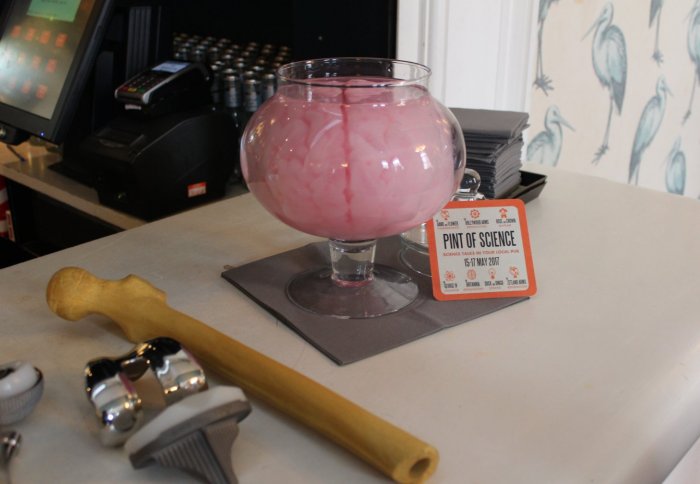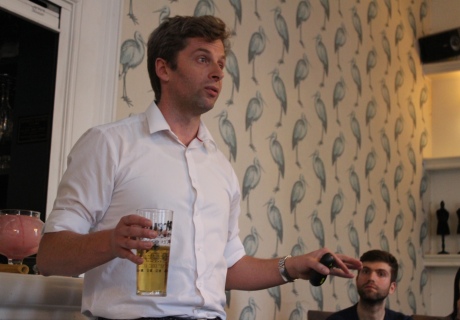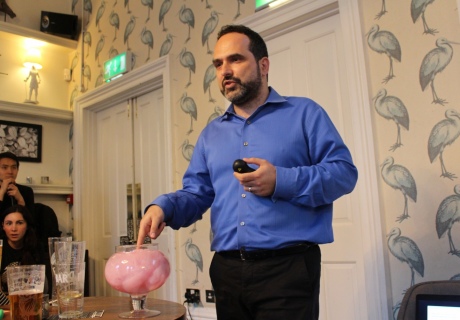Hairbrush-inspired bone implants and brain phantoms at Pint of Science

Yesterday evening, Mech Eng academics Dr Jonathan Jeffers and Professor Daniele Dini talked about advances in medical engineering at Pint of Science.
Dr Jeffers, a member of Imperial's Biomechanics research group, focused on the issue of orthopaedic implants and the ways they can be improved using the latest 3D printing technology.
The new technique presented in Dr Jeffers’ talk proposes a better way of fixing orthopaedic implants to the bone, as the forces required to insert the implant are much less than the ones required to extract it, unlike current techniques for bone fixation. The design of the new device was inspired by an everyday object: a round hairbrush.

Dr Jonathan Jeffers at Pint of Science
Later in the evening, Professor Daniele Dini from the Tribology group talked about the connection between his field of research and advances in brain surgery.
The Tribology group developed a new material for brain phantoms that could help surgeons train and improve their precision. Professor Dini explained the difficulties of mimicking the properties of living brain as a material and the circumstances of a real brain surgery. The audience were able to see and even touch the new brain-like material.

Professor Daniele Dini at Pint of Science
More photos of the event can be found on our Flickr account.
Pint of Science is a non-profit organisation (founded by Imperial researchers) that brings scientists to the local pub to discuss their latest research and findings with the public. Last year, the Department of Mechanical Engineering at Imperial was represented by Dr Ravi Vaidyanathan and Dr Guillermo Rein.
Article text (excluding photos or graphics) © Imperial College London.
Photos and graphics subject to third party copyright used with permission or © Imperial College London.
Reporter
Press Office
Communications and Public Affairs
- Email: press.office@imperial.ac.uk
